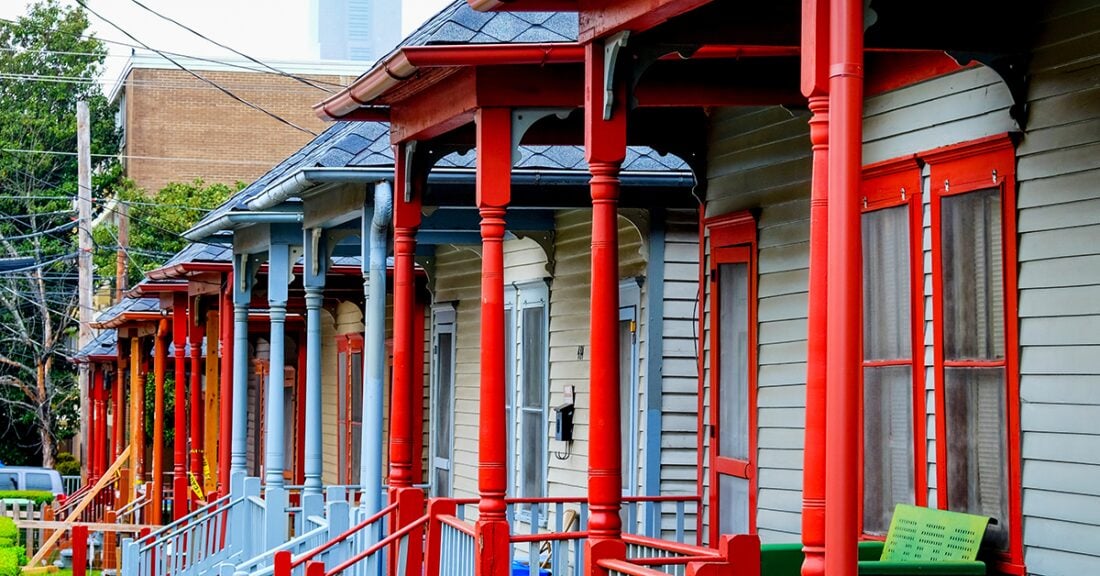What's Needed to Create and Preserve Affordable Housing in Atlanta

Between 2013 and 2021, the percentage of income that Black Atlantans spent on housing decreased from 54% to 46%.
Why?
While the surprising statistic can be explained by many factors, including an increase in new apartments and higher-earning residents, a major factor was the COVID-19 pandemic. The government created temporary eviction moratoriums, rental assistance programs and a federal child tax credit.
The lesson is simple: When it comes to making housing more affordable, policy change and financial assistance work.
Atlanta’s Cost-Burdened Households Today
Today, housing costs in Atlanta are higher. More residents, especially children, are experiencing eviction and homelessness. These families are considered “cost-burdened” households.
Learn how to support students of color in Atlanta
Federal housing guidelines categorize individuals as cost burdened if they spend more than 30% of their income on housing costs. This includes necessities such as food, transportation, education, child care or emergency savings.
Even in 2021, when housing costs for Black Atlantans were comparatively low, they spent more on housing than their Asian (21%), Latino (25%) and white (16%) neighbors.
To relieve the cost burden experienced by many Black households in Atlanta, housing must become more affordable.
Housing Affordability and Homeownership
Housing affordability is a citywide challenge but disproportionately affects Black Atlantans. While 45% of Atlanta residents are homeowners, only 35% of Black residents own their homes.
Home ownership provides many advantages, including:
- predictable housing costs via a consistent mortgage payment;
- greater protections from housing displacement compared to renting; and
- ownership of an appreciable financial asset that can lead to intergenerational wealth.
To relieve this housing cost burden, Black Atlantans must have greater access to homeownership opportunities.
Casey’s Investments in Housing Affordability
While much of the Casey Foundation’s work in Atlanta is dedicated to helping renters, it also invests in strategies that increase housing affordability and household incomes.
Read about ending income inequality in Atlanta
These include:
- Investments in affordable housing policy. The Foundation’s housing advocacy grantees — such as Abundant Housing Atlanta, Housing Justice League, Georgia ACT and HouseATL — have all helped secure new tenant protection laws and protect Georgia’s Low-Income Housing Tax Credit program this year.
- Protection of existing homeowners.
- Casey grantee HouseProud currently provides critical home repairs for longtime Atlanta residents.
- Another grantee, the Atlanta Beltline Partnership, helps reduce property tax costs paid by legacy residents.
- Entrepreneurship and employment opportunities through Pittsburgh Yards. This 31-acre site is the Foundation’s largest investment in equitable development. It provides affordable commercial space for local small businesses, encouraging the development of high-wage jobs in south Atlanta.
- Legal advocacy for tenant protections: Through partnerships with Atlanta Volunteer Lawyer’s Foundation and Gideon’s Housing Taskforce, the Foundation works to ensure that elementary school students can remain in school even when parents are faced with eviction.
- New collaborative ownership models:
- The Atlanta Land Trust, a grantee that purchases and develops property with funding from public and philanthropic sources, helps new homeowners access affordable housing. When a homeowner is ready to sell, they return a portion of their profit back to the land trust to keep the housing affordable for the next family.
- The Guild, a worker-owned cooperative, is in the process of developing a 7,000-square-foot, mixed-use building in Atlanta’s Capitol View neighborhood. The structure will house a commercial space on the bottom and collectively owned affordable apartments on top. Capitol View residents will be able to buy building shares starting at $10, receive dividends and hold voting rights to determine how profits will benefit the community.
These targeted investments and strategies, which are centered on policy change and financial assistance, are important steps toward a more equitable and affordable housing market in Atlanta.
Amanda Jaquez is a senior associate with the Casey Foundation’s Atlanta Civic Site.




 Amanda Jaquez
Amanda Jaquez


